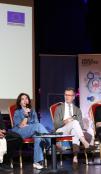Gjirokastra, a rare example of ethnic and religious harmony in Albania
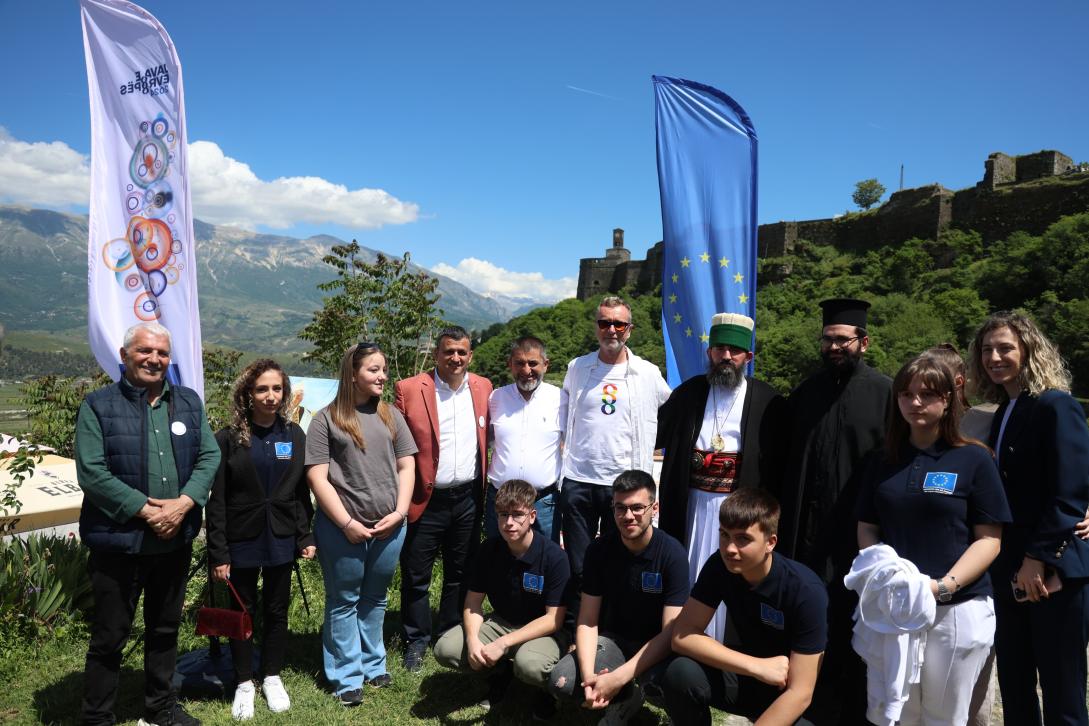
In Varosh in Gjirokastër, visitors can still see the Church of Archangels, with its white stone walls. Inside, biblical scenes from icons welcome Christians and tourists. An imposing arcade stands as one of the entrances, while in its southern gate an inscription shows it was built in 1777. A story that dates back more than two and a half centuries tells of the special significance this church holds for the communities in the city.
“When the church was being built, the walls constructed during the day were demolished at night by those displeased its presence. Father Mustafa from Tekke of Shtufi set up a tent near the construction site and stayed there to guard it for almost a year until the church was completed. All we have to do is to continue what our ancestors have done. This is harmony”, said Father Myrteza Shehu, a representative from Bektashi order, during the discussion on ethnic and religious harmony in Gjirokastër, on Europe Day.
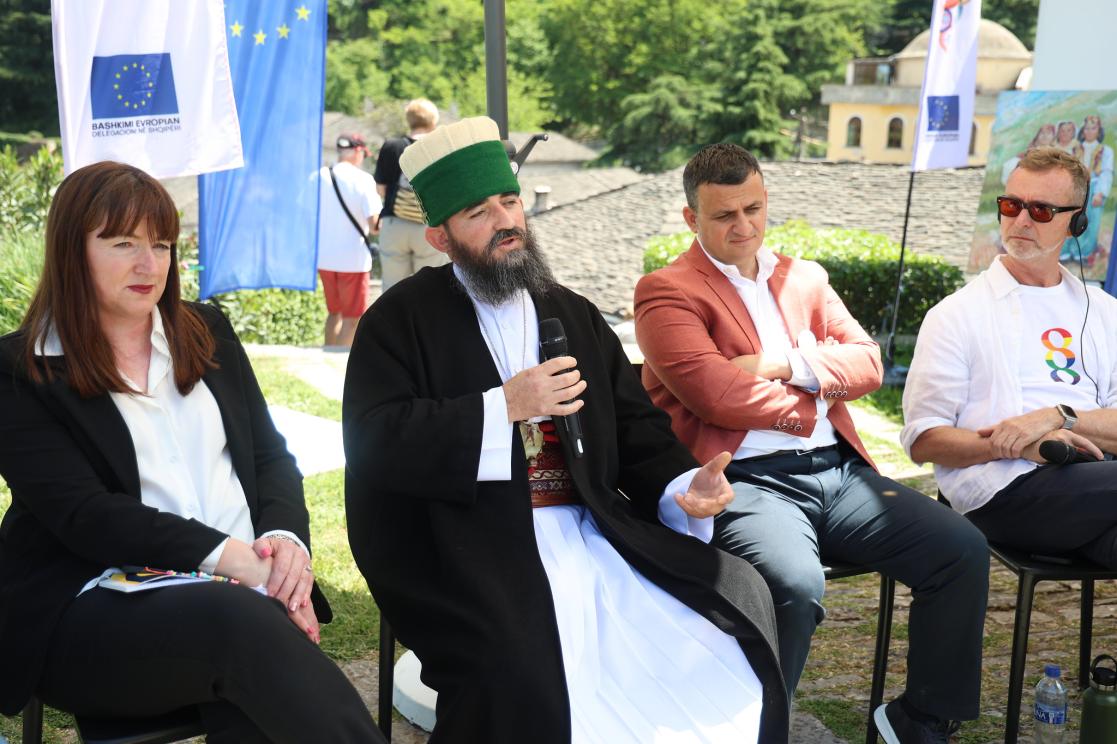
EU Delegation to Albania
Father Myrteza recalls an almost forgotten story to illustrate the values that have shaped city’s communities, where different religions and ethnicities live, collaborate and coexist in harmony.
Considering religious harmony in Gjirokastra as unique, the representative of the Muslim community, Ndriçim Gjika, emphasized the steps needed for the future.
“With all that is happening worldwide, we also have to prepare because it's better to prevent a disease than to cure it. As we know, there won't be peace between nations without having peace between religions, and to have peace between religions, dialogue is needed", he said.
Highlighting Albania’s rare example of religious harmony, the EU Ambassador, Silvio Gonzato, noted the importance of dialogues to pass religious harmony to future generations.
“We have something very rare that we should nurture and export within the region, which has unfortunately been ravaged by people using religion for nationalistic interests. Religion has nothing to do with violence. It would be so valuable if in these dialogues, we discover the common values in all religions: the dignity of human being and the compassion. We should talk about how to preserve these values and show them to other countries. Religion should not be a barrier; it should bring us together. Traditional diplomacy does not deal with religion, as we are secular, but we have realised that you must consider it when creating bridges and promoting peace. Talking to religious leaders can be crucial in promoting peace, solidarity and ending conflict”, underlined Ambassador Gonzato.
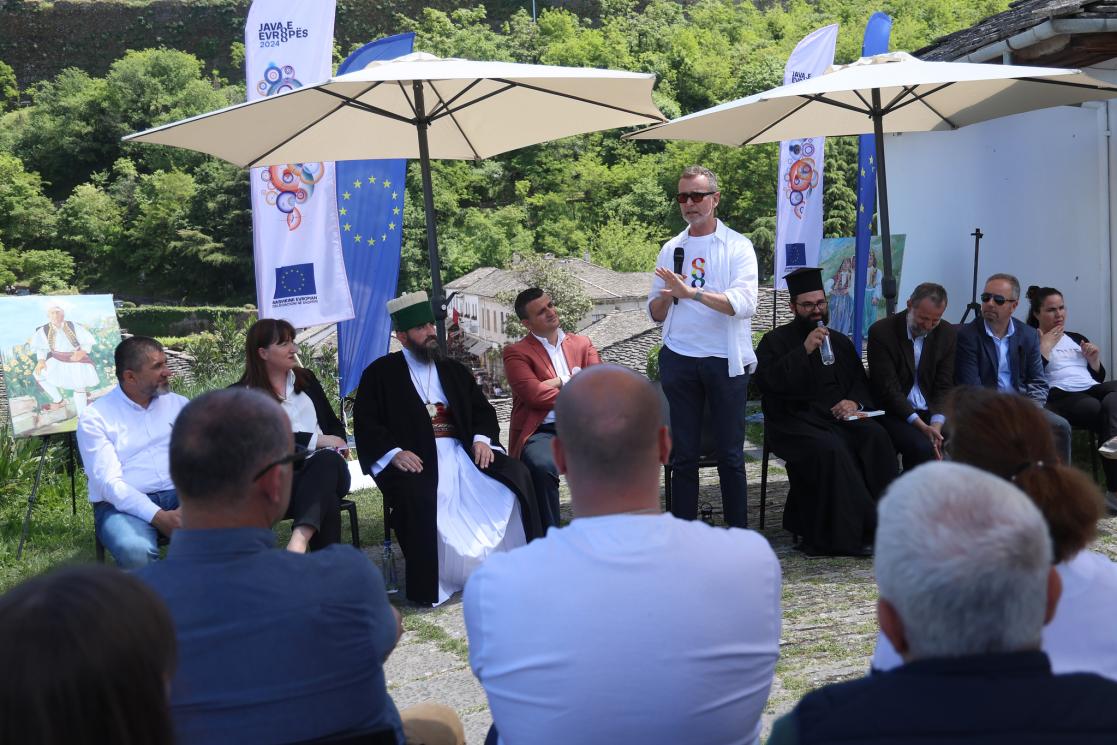
EU Delegation to Albania
The representative of orthodox community, Metropolitan Dhimitër, appreciated the initiative to organize the discussion, noting that religious coexistence and harmony come only through dialogue. “The only way for our region to live in peace is for the religious communities themselves to accept and respect the existing diversity, the freedom of conscience of every individual, and the freedom of every minority. What is required is not just tolerance but mutual respect and understanding", he highlighted.
Ideas and suggestions on how dialogues can cultivate tolerance and avoid conflicts were brought to light during the discussion which took place at “Obelisku” in Gjirokastër.
The mayor recalled the old city again, suggesting rebuilding what the past demolished.
“Nearby where we are today, we had the Catholic church. Maybe the community should consider possibility of rebuilding the church destroyed in the 1980s. For us, it doesn't matter if the majority is Muslim, Orthodox, or Catholic; we are all one. One of the values we have inherited is interfaith marriage, a value that we all have a duty to preserve to maintain harmony”, said Flamuri Golemi.
Almost simultaneously with the Church of the Archangels, the Bazar Mosque, a cultural monument, was built in Gjirokastër. They stand in different parts, ‘guarding’ it and showcasing its diversity, heritage, and history.
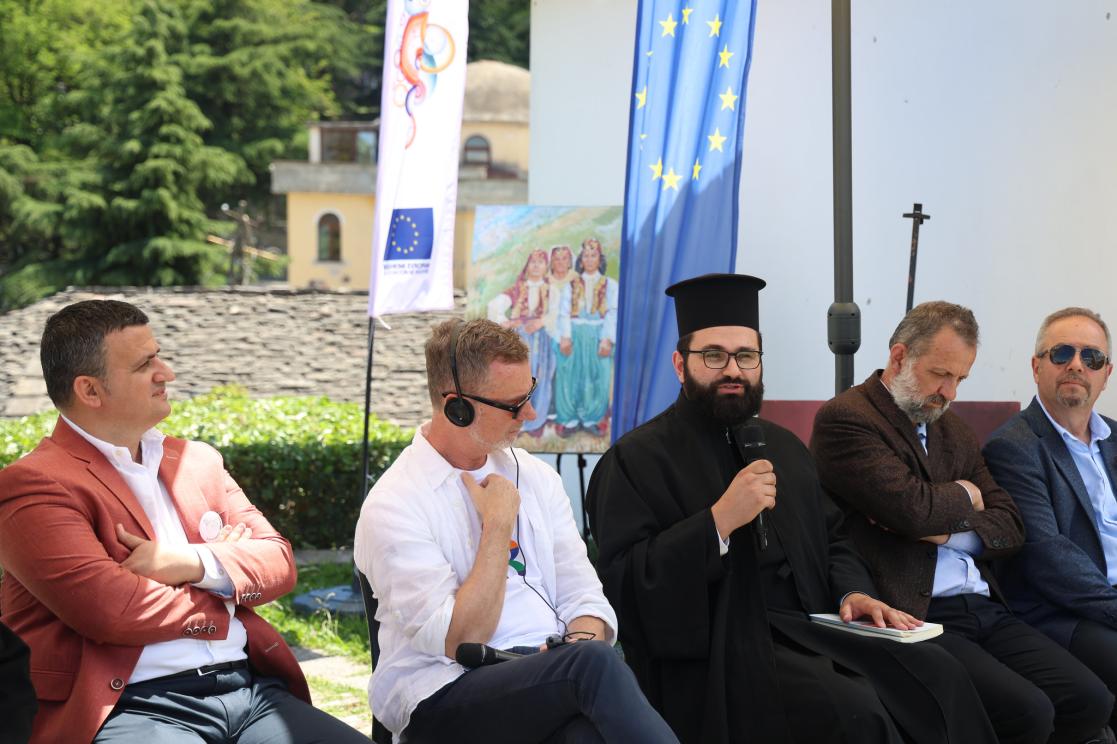
EU Delegation to Albania

